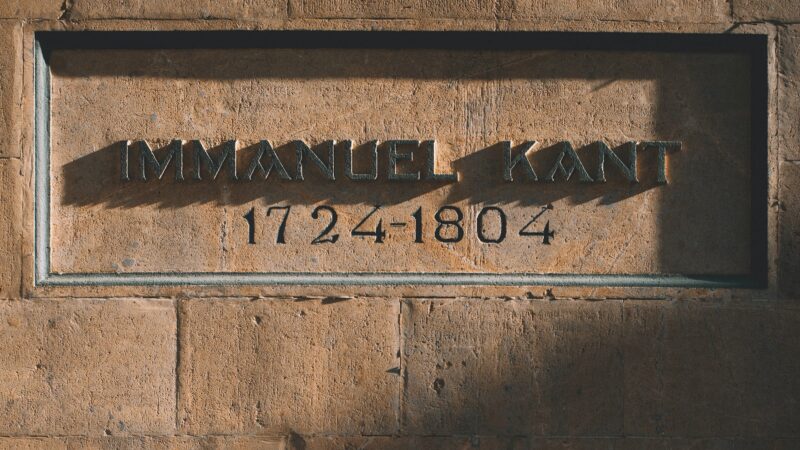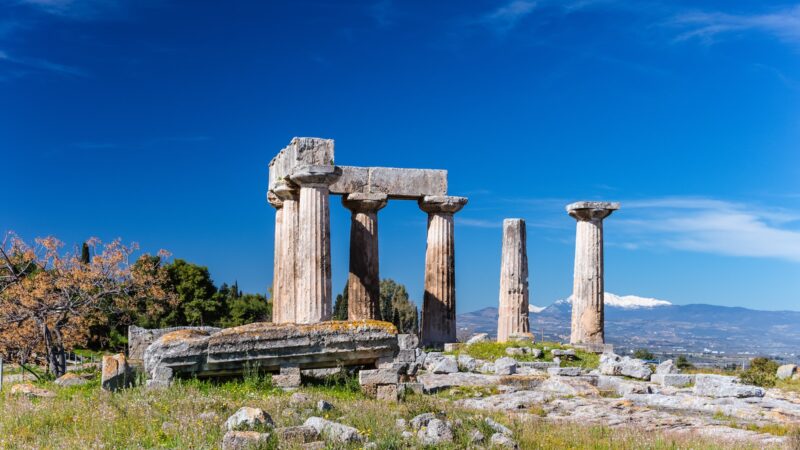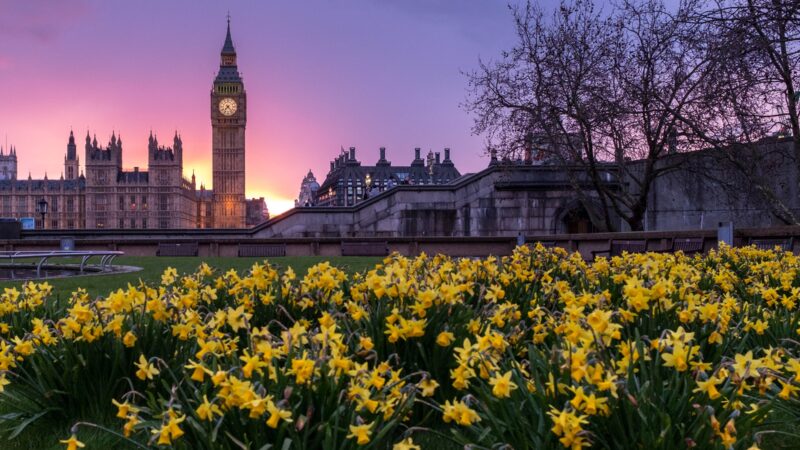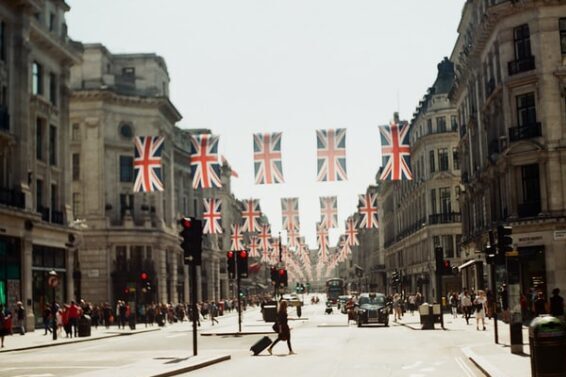Reading Kant’s Significance in the History of Political Ideas
The purpose of this short enquiry is into the significance that Immanuel Kant’s essay, “An Answer to the Question: What is Enlightenment?” (1784) played in the development of political thought. It is widely known and remarked upon that the Answer is a major intervention in the apotheosis of the Enlightenment, and its remarkable brevity has provided great philosophical inspiration. My concern here, however, is the specifically political implications of Kant’s observations and the wider Enlightenment (Aufklärung in Kant’s native German). The fact that German is the original language might seem a minor point, but in reality is the central issue to my enquiry: German is famously difficult to translate directly into English, the most common philosophical examples being Geist (Hegel) and dasein (Heidegger). Kant is, quite obviously, not spared this.
The opening lines remark that Enlightenment is “man’s emergence from his self-imposed immaturity”. Immediately we are faced with a semiotic problem: some translations of Kant’s phrase are “self-imposed nonage”, whilst some also use the more evocative minority. In this sense, “immaturity/nonage/minority”, might seem interchangeable but in the history of political ideas hold varying degrees of weight: immaturity is the most commonly used term because of its relationship to the wider Enlightenment’s project of reason, rationality and clarity of thought, which is a state of achievement of the intellect. Nonage and minority, however – which is the chosen translation of Columbia University and, as Mary J. Gregor shows, was Kant’s intended meaning – mean more specifically a state of dependence, as Kant quickly moves onto, arguing that it is the “inability to make use of one’s own understanding without direction of another”.
The reason minority is more appropriate than immaturity is that the latter implies a lack of critical faculties, whereas the former implies a denial of their existence. It is not that “man” or “the human” cannot make use of rational thought, but that he is not allowed to do so – in a state of self-imposition, of course. Kant is not claiming that the human race has been enslaved, but that it has thus far displayed a “lack of resolution and courage” to use its own powers of intellect. None of this is particularly original or insightful commentary: indeed, Kant deals with it in the first paragraph of the Answer. What matters, however, is the historical context of political thought which was inevitably in the back of Kant’s mind.
As the Answer moves on, Kant claims that it is unlikely individuals in their own lives will be able to embrace this rational freedom fully, and that those who do will “only make an uncertain leap over the narrowest ditch”. Kant directs, instead, his call to courage to “a public” (ein Publikum) which has made the mistake of allowing its thinking to be done by a minority (and here the word is specifically denoting a numerical minority) and not itself. “Publikum” offers another linguistic indeterminacy, unfortunately, on both sides of the linguistic barrier: in translation, for instance, “publikum” might mean people, or public, or audience; in English, meanwhile, ‘people’ might mean several individuals, a single mass, a multitude, a greater entity than merely the sum of those alive, and so on. Here, we can reasonably assume, due to Kant’s context, he means “the public” in the pre-democratic tradition, of the wider numbers of individuals who are not “fit to rule”.
It is this proto-democratic move that makes Kant so significant, and his comment on “minority” often passed over by political theorists. To understand why, we must take a brief detour to the medieval jurists. In late-twelfth and early-thirteenth century England, there arose the idea of a specifically public realm that belonged not to the King, but to the wider entity of the public world; again, not public in the sense of the multitude of undifferentiated people, but the “eminent domain” that, as Ernst Kantorowicz observed, belonged to the continuity of a domain whose matters”touched all”.
At the same time in history was the slow transference of ideas from the religious to the secular, specifically the application by Baldus de Ubaldis of St. Augustine’s idea of the “mystical body” (corpus mysticum) of the Church, to the public, using the same terminology – a corpus populus mysticum, a mystical public body. The first, emergence, and then alignment of the public with the “political realm” is significant when we read Kant’s appeal to the public, as he was speaking to a surprisingly recent development of political thought, which was still much-resisted by monarchs and republics across Europe (it is important to remember ‘republic’ and ‘democracy’ are not synonymous).
Before understanding Kant’s significance fully, however, there was another major development by Baldus that requires explanation: the idea of the public as a legal minor. Indeed, “the public” was more a legal creation than anything else, but its legal definition and status was as yet undetermined. As Joseph Canning details, Baldus argued in the fourteenth century, that the populus could not possess a “legally valid will”, as it was incapable of acting entirely on its own. Instead, it “acts and wills” through its representative: the King (as in a monarchy) or council (as in a city-republic), whose actions are taken as synonymous with the realm. It was following a rediscovery of a Roman Law Edict, moreover, that the legal terminology which anticipated Baldus’ claim arose in the thirteenth century. This Edict observed that those people “under the law” were “madmen, children, and cities”. The conflation with children and madmen implied that a public had no mental maturity that would allow it to govern alone. It did not merely require a King – it depended on one.
This is why Kant’s use of the word “minority” holds so much significance in the history of political thought up to the Enlightenment; Kant directly and boldly refuted the very basis of anti-democratic thought, by claiming that man – in the public sense – was not a minority but in fact did possess the rational intellect capable of making its own choices and, therefore, ought to be given the freedom to exercise that intellect.
There is, however, a short comment to make in conclusion. Kant’s proto-democratic claims did not prevent the nineteenth century thinker, John Stuart Mill, from making the argument that whilst some “publics” (to use Kant’s term) had achieved maturity, others had not – and it was therefore the responsibility of the mature publics to guide the immature publics to civilisation in a benevolent imperialism that, illiberally enough, would influence the imperial project for the rest of its existence. As Jennifer Pitts makes clear, in Mill’s eyes, “progressiveness, the cardinal human quality, was also the monopoly of a select group of societies”.










A Reply to Lea Ypi | Vilma Djala
A few months ago, I came across a book titled “Free” in a book section of a renowned magazine. As a pathologic bibliophile, I was curious but I was also filled with pride to see the Author of “Free” has an Albanian sounding name, Lea Ypi. Indeed, Ypi is an Albanian that fled Albania during the ’90s and is now a Professor in Political Theory in the Government Department of the London School of Economics, not to mention the author is also a woman, adding even more appreciation on my part. The voice of Albanian women hasn’t always been heard in our society, so you can imagine the level of joy I felt. Just to be crystal clear, this feeling of pride is not a mere reflection of any kind of nationalism on my part. It only describes a feeling that many other of my compatriots share: the genuine joy of our country being mentioned abroad, without any relation to crime and poverty. To no surprise, I followed Ypi’s interviews with great anticipation, as she would promote her book and her upbringing in communist Albania.
However, anticipation was soon followed by great disappointment. I must confess, I held high expectations that Ypi would provide a strong and clear-cut condemnation of the communist regime. Reading her interview proved to be an emotional rollercoaster. In Ypi’s interview with what happened to be my professor Ferenc Laczó at Maastricht University, whilst Ypi condemns the communist regime, she somehow waters down its effects on the Albanian people. Every bland admission of a shortcoming on the part of communism is followed by a much fiercer criticism of liberalism. Misinforming the reader of Albanian history, leading them to believe that communism was evil, but a far lesser evil than what was about to follow. When I asked my professor, with disdain, how he agreed to allow someone to skew the truth or, at least, downplay it, his response was, “what do you want from me?.. This is her story, her perception, write your own book then.”
Since I am afraid my book would take too long to write, I feel the urge to clarify a few things for the readers. Indeed, my professor Ferenc Laczó was correct, what Ypi presents is not the truth but indeed her perception. Perhaps, the book “Free” is an account of how Ypi digested our history, and it is that exact digestion that pleases Western readers. Ypi goes as far as feeding the western readers the idea that we were obsessed with symbols such as Coca Cola cans, hence the cover of Ypi’s book. A mixture of pop and folkloristic representation of our grief. If you are seeking a true representation of the horror Albania endured during the communist regime, I regret to inform you that the right person is not someone that defines themselves as a “Kantian Marxist”, not someone with a fallacious view on freedom – thus definitely not Lea Ypi.
Ypi talks about the importance of free will and the ability to make choices by suggesting that, in communist Albania, “you could choose whether to spy on your neighbour. You could pretend you didn’t see something” she adds “there were some good officials who exercised a little discretion”. Ypi believes that “morality is not something created by institutions, there is a kernel of goodwill in everyone”, without mentioning that morality in Albania was often punished and that it becomes really difficult to keep your integrity when you are starving. Ypi goes on to claim that communism had important things to offer, such as solidarity, by saying that in our society nowadays solidarity takes the form of charity and that this distracts us from asking where that wealth comes from. But, I’d like to remind Ms Ypi that solidarity in Albania was achieved through the forced appropriation of private property. These are important details she surely forgets to mention. My father, a member of a family of Kulaks, at the time, was a warehouseman and decided to falsify the figures to give extra flour to a very poor family he knew in his village. This family was one of many around him struggling to survive. The poor family went on to report him to authorities and my father risked his job. A few years afterwards he decided to illegally migrate to Italy. If this is the freedom Ms Ypi talks about, it is a freedom I struggle to aspire to.
Two points are especially misleading about the recollection she gives about those times:
Education and competitiveness:
Ms Ypi argues that education was currency under communism and that in Albania people were extremely competitive on intellectual grounds. She adds that people could freely ask how much money others were making because the competition was not based on material things. This is a statement bordering on incredulity as many people, from persecuted families could not even go to school or pursue any higher education. And when they were allowed, it was the party who decided what subject they could study. My paternal family serves as an example: my father and some of his siblings were not given the concession to pursue higher education. For others, my grandfather had to pay someone a sum to convince them to give that permission. I wonder if we could call a schooling system “competitive” if many did not even have access to it. In fact, this created a division between first and second class citizens, the educated and the uneducated. A division that had repercussions even within an individual family.
She has gone on saying that the system “was unforgiving in terms of performing well, and reading all the books that could be read and knowing all the culture that could be known.” This sounds like a contradiction; how can a system be competitive if it puts a limit to the knowledge you can access? My mother recalls having to write a paper on “why is Albania the best country in the world” and being silenced when she asked the teacher how could she know if it was best when she had never seen any other country. Of course, very few people were allowed to leave the country and many were killed when they tried. Can a system that was based on Marxist propaganda and censorship be considered competitive?
Mass emigration and its causes:
Similarly, Ms Ypi seems to misplace correlations between events. She seems to suggest that what caused the mass emigration of Albanians all along with the 90s was the financial disaster that took place at that time. Indeed, two-thirds of the population was estimated to have invested in Ponzi schemes that mostly collapsed, leading to a lot of families losing all their savings. But can the exodus be blamed on this last misadventure or on the over 40 years of a command economy that left Albanians in financial illiteracy and unable to manage their own money for so long? The exodus was provoked by decades of lack of all basic freedom, among them the right to private property. It comes to no surprise that when freedom came, people of Albania acted like a dog trapped for so long, finally unleashed and without a master.
Albania is going through a dark phase, where freedom is in peril once again. More than ever in our republican history. When the parliamentary elections were held in April 2021, the government of Edi Rama won for the third term. One of the bastions of his party is the digitalization of public administration. However, it is a pity that this process has been used to monitor its own citizens. In fact, a scandal followed these elections, revealing that the government had access to a database containing names and last names, their phone numbers, their ID number, addresses, place of work and voting preferences of 910,000 citizens. Since then it has been revealed and confirmed that each person was assigned a “patron”, basically a canvasser who tracked their political preferences. Additional comments, recorded by the patrons, reportedly detail their interactions with citizens, with some instances amounting to possible voter intimidation.
The Prime Minister has confirmed that the system of patrons is in place but he has claimed that the collection of data happened through door-to-door meetings. Since then, no investigation has been performed. In the meantime, many journalists have identified that among the 9,000 “patrons” there are public sector employees, police officers and even army personnel. And, Albania’s Ombudsperson has already declared that the collection and processing of sensitive information seen in the database are unlawful, in the first place. This would not cause indignation if this monitoring had received any consent, which was clearly not the case. It is a chilling feeling that reminds me of the times when spying on your fellow citizens was encouraged. Moreover, as I write this article, other sensitive data was released on salaries and cars possessed by citizens. Why don’t you know about it? Because people are too tired to fight back.
It is also quite puzzling how Ypi decided to present her book in the villa that belonged to the dictator along with Prime Minister Edi Rama. She replied to accusations about this choice saying that for her it was a powerful message to send for someone with persecuted ancestors to present her book there. Instead, I believe, an even more meaningful signal would have been that of presenting that book in what was the house of Musine Kokalari or the dedicated museum? Musine, being the first published Albanian women author, and the founder of the Social-democratic party, died poor and neglected after decades of forced labour by the regime. A commemorative placard dedicated to her was vandalised last year. The question around the role that writers and artists, in general, have to play in our society is a timeless one, but since Lea Ypi has decided to write about our history she holds a duty to be truthful to facts. Especially when our country is experiencing increasing limitations of freedom, and appalling breaches of privacy.
I have tried in these past months to understand what can push a person to minimise the evils of our regime. Nobody in their right mind would do that with Nazism and I have acquired the personal conviction that Lea has to still overcome a sense of inferiority towards the West and that she also holds personal interests in a future political career. What gives me this conviction? In her interview with the Guardian, she claims that “there is a special pleasure in observing the empty shelves and educational chaos of post-Brexit Britain because, after years of being lectured about the supposed failures of where she comes from, the tables are reversed for once”. My mother, who migrated to Italy, along with my father, and many other Albanian immigrants would have no problem admitting the failures of where they come from.
Those failures are not supposed, they were real. Admitting them is the first step to rebuilding our country better. Those failures need to be acknowledged in order to not be repeated. The reason why Ypi takes pleasure in seeing her host country, the United Kingdom, suffering while my mother would never do the same, struck me: my mother being 50 years old experienced both the regime and the chaos of the days where the country fell into anarchy, while Ypi was only 10 when the regime fell. Ypi only experienced a fraction of the strict communist regime. She herself admits that her parents had opted to keep their children safe by letting them believe everything they were taught at school during the regime. So, is she the right person to weigh in if it is liberalism that has failed the country or communism? In her interview, she also admits that one of her childhood dreams was that of being a president one day. Given the welcome she received from the ruling Socialist party, I would not entirely exclude it. The party needs repainting and new faces. What better than a young female professor in a prestigious university such as LSE, in times where symbols matter more than substance? After the criticism her interviews received, she claimed those are only defamatory voices. But, shouldn’t someone who knows her country well protect herself from any affiliation and appropriation of her work? Once again, this is either a sign of naivety or ignorance.
Although the interviews provoked a lot of sorrow and outrage in my own and other descendants of persecuted families, her words were also essential in providing yet further evidence about the fact that our country is in desperate need of a decommunization process. Thirty years on from the fall of communism, people know so little about the past, who were the perpetrators and how much they are still involved in our current institutions. I find it emblematic that another book was published almost at the same time by a Polish author, whose book I promptly bought. The book is titled “Mud sweeter than honey” by Margot Rejmer, whose homeland of Poland has done far more to address its communist past wounds. Perhaps, the book is less of an intellectual grabbing at straws or mental gymnastics but it also demonstrates that the minds behind our regime were able to produce atrocities that defy the imagination of the best science fiction writers.
Communist Albania was often compared to a European North Korea. Although it is true that freedom has not always represented peace for us, it was worth fighting for. It is better than a system that decided what we could study, what we could eat and how much of it and whom we could marry. The last step for freedom that we still have to take is owning our shaded areas. Many of us, second and third-generation Albanian migrants spread around the world, who often speak better foreign languages than our own mother tongue, had to grasp a past that our parents were too traumatised to tell. It was only when I turned 25 that my father finally let go and he told me about his past made of betrayal, deceit and lack of chances and freedom.
However, it is also in us, the children of these emotionally broken people, that rests the power of healing our country of origin. If our parents and grandparents are not strong enough to recount their past, we can be their megaphones. We cannot let people who have egos and inferiority complexes do it instead of us. Because all of that pain cannot be minimised; healing only rests in accepting you are sick first.
Photo Credit.